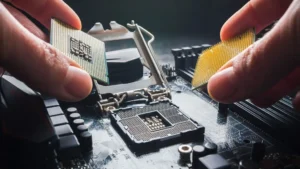In today’s article, we’ll explore the world of format specifiers in the C programming language.
Format specifiers are essential tools for formatting input and output operations, allowing programmers to control how data is displayed and interpreted.
We’ll delve into the different types of format specifiers available in C, how to use them effectively, and provide examples along the way.
Introduction
Before we dive into the details, let’s establish a clear understanding of what format specifiers are and their significance in C programming.
Format specifiers are placeholders that indicate how data should be interpreted or displayed when using functions like printf and scanf.
By using the appropriate format specifier, we can ensure that the program handles input and output operations correctly.
What are Format Specifiers?
Format specifiers consist of special characters preceded by a percentage sign (%).
They are used in functions like printf and scanf to specify the type of data being passed or received.
Each format specifier corresponds to a specific data type, such as integers, floating-point numbers, characters, or strings.
Common Format Specifiers
Integer Format Specifiers
%d– Used for printing and scanning integers in decimal format.%ld– Used for long integers.%hd– Used for short integers.%u– Used for unsigned integers.
Floating-Point Format Specifiers
%f– Used for printing and scanning floating-point numbers in decimal notation.%lf– Used for double-precision floating-point numbers.%e– Used for scientific notation.%g– Automatically chooses between%fand%eformat based on the value.
Character Format Specifiers
%c– Used for printing and scanning individual characters.%s– Used for printing and scanning strings.
String Format Specifiers
%s– Used for printing and scanning strings.%p– Used for printing pointer addresses.
Modifiers and Width Specifiers
C format specifiers can be further modified to achieve specific formatting requirements. Some common modifiers and width specifiers include:
-– Left-aligns the output.+– Forces a sign to be displayed even for positive numbers.0– Pads the output with zeros..– Specifies the precision for floating-point numbers.*– Takes the width or precision from an additional argument.
Using Format Specifiers in C
To use format specifiers, you need to provide them as arguments to the appropriate functions.
For example, to print an integer using %d, you would use printf("%d", number);. When scanning input, you can use the same format specifiers with scanf to correctly interpret the entered data.
Examples of Format Specifiers
Let’s explore some practical examples to understand how format specifiers work in C:
Example 1: Printing and Scanning Integers
cCopy codeint number;
printf("Enter an integer: ");
scanf("%d", &number);
printf("You entered: %d\n", number);
Example 2: Printing Floating-Point Numbers
cCopy codefloat pi = 3.14159;
printf("The value of pi is approximately: %f\n", pi);
Formatting Output with Format Specifiers
Format specifiers offer various options to format the output.
You can control the width, precision, alignment, and other aspects of the displayed data.
These formatting options can be combined with the format specifiers to achieve the desired output format.
Conclusion
Format specifiers are crucial elements of C programming for formatting input and output operations.
They allow programmers to precisely control how data is displayed and interpreted.
By understanding the different types of format specifiers and their usage, you can enhance the readability and usability of your C programs.
FAQ
Can I use multiple format specifiers in a single printf statement?
Yes, you can use multiple format specifiers in a printf statement to print multiple values.
What happens if I use the wrong format specifier for a variable?
Using the wrong format specifier can lead to incorrect output or undefined behavior. It’s crucial to match the format specifier with the correct data type.
Are format specifiers platform-dependent?
Format specifiers in C are standardized across platforms, so they should work consistently regardless of the operating system.
Can I create custom format specifiers?
No, C does not provide a way to create custom format specifiers. You need to use the existing ones or build your own formatting logic.
Are format specifiers case-sensitive?
No, format specifiers in C are case-insensitive, so %d and %D will have the same effect.
O que você achou desse review?
Média da classificação 5 / 5. Número de votos: 1
Nenhum voto até agora! Seja o primeiro a avaliar este post.




